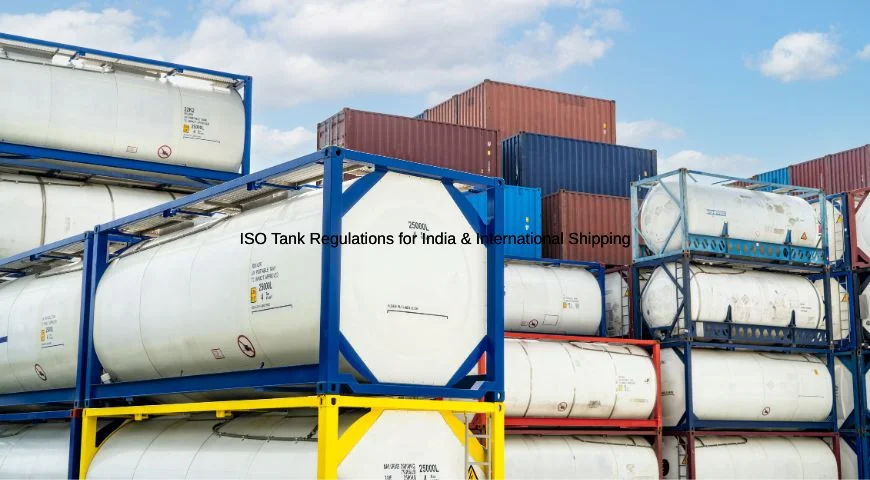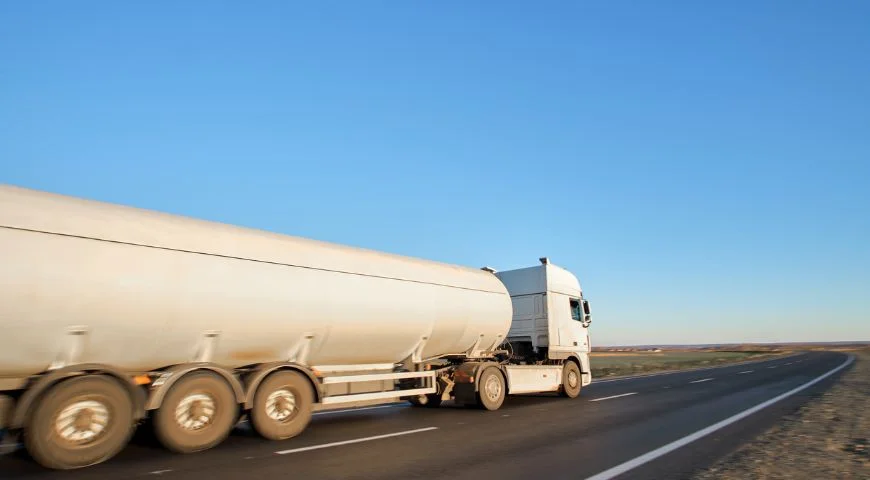
A Complete Guide to ISO Tank Regulations in India & International Shipping
Global liquid and gas logistics depend on ISO tank containers for safe, standardized, and efficient transport—both across countries and across oceans. In India and the USA, ISO tank regulations are essential for safe and seamless cross-border operations for shippers and logistics teams. This guide offers a proactive insight on the current standards and best practices of ISO tank operations in the domestic and international landscape that is increasingly scrutinized, enforced, and now teeming with sophisticated technologies.
The Foundations: What Are ISO Tank Containers and Why Do Tank Regulations Matter?
The ISO tank containers are special, cylindrical tanks that are designed based on the strict rules of the International Organization of Standardization (ISO). They transport chemicals, food-grade products, gases, and hazardous materials on a global forwarder, which are used by iso tank operators in India. Regulatory compliance does not only mean that the paperwork has been completed, it is also a concern of environmental protection, of people and of precious cargo.

The regulations in India are more or less in line with the world standards with regulations by Directorate General of Shipping (DG Shipping) with reference to codes such as International Maritime Dangerous Goods (IMDG) Code and ADR (European Agreement concerning the International Carriage of Dangerous Goods by Road). To prevent expensive delays or fines, international shippers, particularly those that use services of sea freight forwarders and air cargo forwarders, have to make sure that tanks comply with cross-jurisdiction.
Key Requirements: India and International Compliance Points
1. Design, Testing & Certification
Any iso tank container has to comply with the stringent production standards, such as integrity of materials, strength of the frame, and resistance to pressure. In the case of containers that are transported between hubs such as iso tank in Mumbai, iso tank in Nhava Sheva, iso tank in Mundra, and iso tank in Hazira, a certification by an approved body (e.g., Bureau Veritas, Lloyds Register) is required. The tanks should be regularly inspected, hydrostatically tested and recertified after every 2.5 and 5 years as stipulated by the Indian and international regulators.
2. Documentation & Tracking
Documentation is a must, it has to be proper documentation of test certificates, material safety data sheets (MSDS), cleaning records, and legal compliance with the Customs and Excise requirements. The innovative tank container depots in India are using digital platforms to track the container in real-time, giving visibility to all 20ft iso tank containers in mumbai as they are being transported either over sea, rail or road. This plays a critical role in the management of supply chain in ISO tanks be it the chemical plants or distribution warehouses in the USA.
3. Safe Handling, Loading & Environmental Considerations
The international and Indian laws permit only the loading and unloading of the ISO tanks to be handled by trained individuals. This particularly applies when dealing with a big port and logistic hub such as tank container in Nhava Sheva or iso tank in Mundra. There are also regulations that require high-cleaning and decontamination procedures especially when tanks are being changed between cargoes. Local port authorities and other world environmental agencies enforce environmental protections, such as prevention of spillages and handling of hazardous wastes.
Navigating Iso Tank Regulations in Practice
It does not matter whether it is ocean freight forwarding services, port agency services, or bunkering services in India, the logistics companies need to organize numerous moving parts to complete compliance. Selecting most appropriate logistics agents in India would mean that there is punctual inspection, documentation, and smooth transportation of all iso tank containers such as isotank in mumbai and isotank trailer in hazira.
Keeping pace with the evolving regulations – including the modifications of the IMDG Code or the revision of the Indian customs e-documentation – are the key to the continuous flow of the transportation and the security of the specified sphere of activities in the local and global markets.
Conclusion: Confidence in Compliance for a Safer Supply Chain
Compliance with ISO tank rules is not only a legal obligation, but the basis of the worldwide trade safety, efficiency, and reputation. To shippers and logistics managers in India and USA, learning these regulations will facilitate the ease of their work, and will help build better relationships with their partners overseas. FAK Worldwide has made it its mission to keep its clients afloat and functional in all the domains and components of sea freight services, depot operations, and global forwarding.
Stay Connected with FAK Worldwide
To access timely logistics information relevant to the real world, the knowledge of experts, and smarter shipping technologies, follow FAK Worldwide on Instagram, LinkedIn, and Facebook. Make your supply chains resilient and keep them up to date in a dynamic logistics environment!



